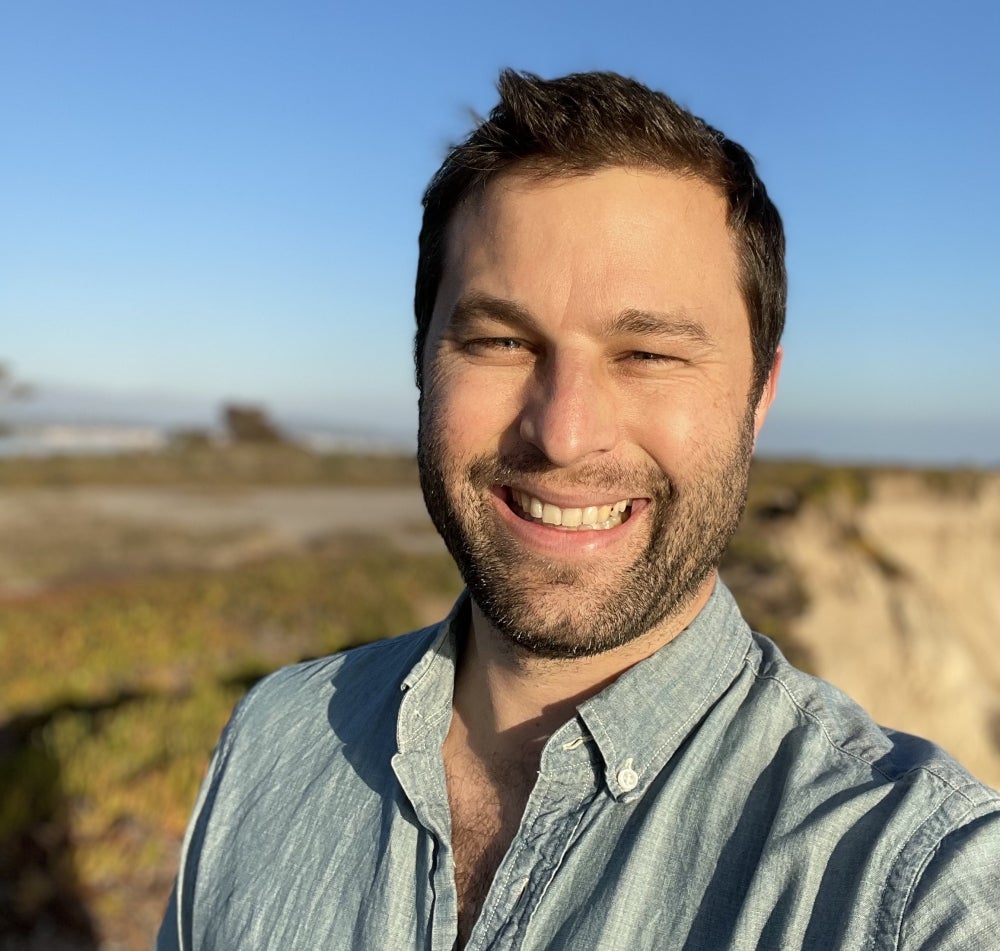
Informing Ecological Recovery
Humans have mastered the art of changing the environment to fit our needs, and scientists such as UC Santa Barbara ecologist Adrian Stier are trying to figure out how the environment will respond.
For his work advancing our understanding of the recovery of degraded marine species and ecosystems, Stier has been named a 2021 early career fellow by the Ecological Society of America (ESA).
Early career fellows are ESA members who have furthered ecological knowledge and applications within eight years of completing their doctoral training, and who show promise of continuing to make outstanding contributions to a wide range of fields served by the society. They are elected for five years.
“I'm incredibly humbled by this award,” said Stier, an associate professor in the Department of Ecology, Evolution & Marine Biology. “When I look around at my colleagues, I feel surrounded by so much creativity and brilliance. I’ve been afforded a lot of opportunities to learn and pursue my curiosity that so many other people aren’t. So I am hopeful that I can leverage any small notoriety from this to offer new opportunities to people who have traditionally been ignored in the sciences.”
Department Chair Scott Hodges offered his congratulations to Stier, saying, “Adrian is a gifted marine ecologist, and his skill at linking basic science with management and conservation make this early career award from the ESA very well deserved.”
Stier’s research focuses on how ocean ecosystems can recover in a dynamic and uncertain future in the face of global climate change. He works mostly at the scale of populations of individual species and the communities they foster when they interact in an ecosystem. His goal: to better understand these systems and incorporate his insights into ecosystem-based management.
He works in two very different settings: Southern California’s giant kelp forests and French Polynesia’s coral reefs. In kelp forests, he seeks to understand how climate change and fishing pressures drive the resilience of the ecosystem. “For example, here in the Santa Barbara Channel, wave disturbance and heat shocks can cause major die-offs in kelp forests,” Stier said, “yet some forests can bounce back rapidly while others stay atrophied.”
In the coral reefs of Mo’orea, French Polynesia, the scientist studies the symbiosis between corals and the animals that use them for food and shelter. He believes that understanding these relationships could shed light on the process of reef recovery following shocks from cyclones and heatwaves.
Stier firmly believes in the importance of basic science in informing ecosystem management, a practice he experienced firsthand as a postdoctoral researcher at the National Oceanic and Atmospheric Administration’s northwest fisheries science center in Seattle. His research has direct implications for how we approach the restoration of kelp forests and coral reefs.
“We still know so little about what underlies the capacity of these habitat-forming species to recover,” Stier said, “and it is my hope that my work can help us understand how to recover these ecosystems that play a critical role in providing social and economic services such as tourism, food security and protection from storms.”



